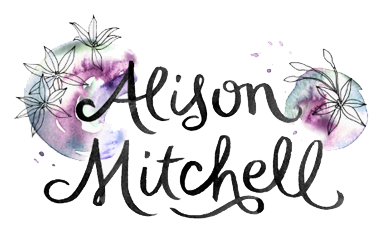Getting Exam Ready
[fb_button]
It’s getting close to exam time, and stressed out students (and teachers and parents) are making more of an appearance in my clinic this last month.
The good news is that the stress and anxiety of the looming HSC doesn’t have to take over your health. So what can be done?

Boosting your brain health
There are a few key strategies I recommend when it comes to making sure your brain is in tip top shape.
Eat well
Teenagers have a very high requirement for nutrients, and this is second only to during pregnancy and lactation. The best way for teenagers to make sure they’re getting all of these nutrients is to eat a diverse diet high in different coloured fruits and vegetables, whole grains (such as brown rice, quinoa, barley, and millet), nuts and seeds, legumes and beans, seafood, moderate amount of meats (or alternatives) and dairy (or alternatives if intolerant/allergic).
The NHANES and NHANES III (National Health and Nutrition Examination Survey) both concluded that:
“The highest prevalence of unsatisfactory nutritional status occurs in the adolescent age group”
They found that teens were most likely to be deficient in:
- Calcium
- Iron
- Riboflavin (vitamin B2)
- Thiamine (vitamin B1)
- Vitamin A
- Vitamin C
- Zinc
Calcium
Teen girls aren’t likely to be thinking about their risk for osteoporosis, but maybe they should be. Peak bone density is reached for most women in their early 20s, and what they are eating in their teen years has an enormous impact on the health of their bones later in life.
While calcium is most well known for it’s role in bone and teeth health, it’s also important for muscle and nerve function, cell health and involved in blood clotting. Dairy is the most well known source of calcium, but it’s not always the most ideal source as many people experience intolerances and/or allergies to dairy. Some good sources are fish with bones (such as tinned salmon and sardines), seaweeds, broccoli, leafy greens, almonds and black strap molasses.
Calcium requirements vary based on need – and the need increases during times of growth, such as during teen growth spurts.
Before rushing off and supplementing with calcium, keep in mind that calcium works best when accompanied by it’s co-factors, in particular vitamin K2, magnesium, boron and vitamin D.
Zinc
Zinc is a really common deficiency, especially in teenagers. It’s important for hormone health, immune health, mood health, hair and skin, growth and development, and in the formation of the reproductive organs.
Deficiency of zinc often shows first in a reduced sense of taste and appetite. It’s very common for this to happen in girls. Skin problems, frequent infections, poor wound healing and mood imbalances are some other common deficiency signs in teens. Fussy eaters are often low in zinc, as deficiency alters taste and appetite.
The best sources of zinc are meat, liver, eggs and seafood (especially oysters), but it’s also found in nuts, legumes, mushrooms, green beans and pumpkin and sunflower seeds.
Iron
Iron is another common deficiency. It’s a mineral that exists mostly within our red blood cells, helping to carry oxygen molecules around the body. When you’re low in iron it can cause feelings of fatigue and difficulty thinking clearly. Iron deficiency can affect thyroid function, and it can also cause the immune system to weaken.
A common sign of iron deficiency is pale nail beds, pale lower eyelids and brittle hair. In severe iron deficiency cases the nails take on a spooned shape.
Iron is found in meat, organ meat and seafood, as well as in nuts, legumes, some fruit and dried fruit and some vegies including beetroot and spinach.
Calorie and nutrient requirements
Calories |
Water |
Protein |
Carbohydrates |
Omega -3 fatty acids |
|
| Girls 9-13 | 1800-2200 | 2.1L | 0.95/kg34g | 130g | 1.0g |
| Girls 14-18 | 1800-2400 | 2.4L | 0.85/kg46g | 130g | 1.1g |
| Boys 9-13 | 1800-2600 | 2.4L | 0.95/kg34g | 130g | 1.2g |
| Boys 14-18 | 2200-3200 | 3.3L | 0.85/kg52g | 130g | 1.6g |
Vitamin B1 |
Vitamin B2 |
Vitamin B3 |
Vitamin B5 |
Vitamin B6 |
Vitamin B9 (folate) |
Vitamin B7 (Biotin) |
Vitamin B12 |
|
| Girls 9-13 | 0.9mg | 0.9mg | 12mg | 4mcg | 1.0mg | 600mcg | 20mcg | 1.5mcg |
| Girls 14-18 | 1.0mg | 1.0mg | 14mg | 4mcg | 1.2mg | 800mcg | 25mcg | 2.4mcg |
| Boys 9-13 | 0.9mg | 0.9mg | 12mg | 5mcg | 1.0mg | 600mcg | 20mcg | 1.5mcg |
| Boys 14-18 | 1.2mg | 1.3mg | 16mg | 6mcg | 1.3mg | 800mcg | 30mcg | 2.4mcg |
Vitamin A |
Vitamin C |
Vitamin D |
Iron |
Calcium |
Magnesium |
Zinc |
Iodine |
|
| Girls 9-13 | 600mcg | 40mg | 5mcg | 8mg | 1300-1500mg | 240mg | 6mg | 120mcg |
| Girls 14-18 | 700mcg | 40mg | 5mcg | 15mg | 1300-1500mg | 360mg | 7mg | 150mcg |
| Boys 9-13 | 600mcg | 40mg | 5mcg | 8mg | 1300-1500mg | 240mg | 6mg | 120mcg |
| Boys 14-18 | 900mcg | 40mg | 5mcg | 11mg | 1300-1500mg | 410mg | 13mg | 150mcg |
- The best way to keep the hunger at a reasonable level and reduce the urge to splurge on junk food is to eat regularly, and to keep a varied, low GI diet.
- Ensure there’s plenty of good fats such as coconut oil, butter, nuts and seeds, olive oil and avocado. Nut butter and almond butter are a great snack idea and really help to satisfy hunger.
- Beans, legumes and brown rice are a cheap way to add in some extra fibre, complex carbs and calories. Have a side of these with your main meals, and make dips with beans for some extra sustenance throughout the day. To reduce the gas you can experience with them, use dried beans, soak them overnight then cook on the stove for a few hours, rather than buying the tinned. You can keep them in the fridge for about a week.
- Aim for 2 to 3 pieces of fruit a day, and at least 5 serves of vegetables a day. Starchy veg like sweet potato, potatoes and pumpkin are a great source of calories and have plenty of fibre.
- If you choose, you can use Meat, chicken and fish for additional protein.
- Whether you choose to include grains and dairy in the diet depends on the individual, but if there’s no intolerance than yoghurt and cheese are a good addition, and melted cheese can help make a lot of veg more palatable for fussy teens.
Snack ideas:
- Apple slices with nut butter
- Vegie sticks with dip
- Popcorn
- Full-fat yoghurt (avoid brands with added sugar and thickeners)
- Fruit
- Baked corn chips with bean dip
- Hard boiled egg and a piece of fruit
- Trail mix
- Muesli bar
- Protein/bliss balls
- Roasted chickpeas with seasoning
- Edamame beans
Get a good night sleep
Most teens get 7.5 hrs a night, but they actually need about 9 hours. This lack of sleep builds up what is known as sleep debt making them feel pretty lousy in the mornings.
For most teens, sleep is a low priority. They stay up late, often because they’re busy doing things, but it can also be because they have trouble falling asleep.
Normally our bodies work to a biological clock and this helps us to feel tired when it’s time to go to bed and then wakes us up at a regular time, but this clock isn’t working properly in teenagers.
There’s been several studies which have found that teens who get better sleep often perform better in academic and skill tests. Getting a good night sleep can give you a bigger advantage than anything else you can do. One study showed that when teens got a better night sleep, they improved their test scores by roughly 40% compared to when they slept poorly. That’s a pretty huge amount and goes to show the value of good sleep.
Keeping stress under control
It seems that now more than ever teenagers are susceptible to experiencing stress, and this can result in feelings of anxiety, anger, depression as well as sleep disturbances, hormone imbalances and immune problems.
Helpful methods of managing stress don’t vary too greatly to those for adults, but the key point is that teenagers need to be taught how to deal with stress. If at all possible, start the lessons of mindfulness and stress management early (from primary school). Teens who don’t know how to cope with their stress are more likely to release the stress in the form of anger, behavioural issues or substance abuse, and often are unaware that these actions are a result of the stress they are feeling, and are often unaware of the impact stress is having on their mental and physical health.
- Take up an enjoyable hobby – this can be anything from art, music, reading or going to the movies.
- Get physical – sport, particularly that with a social element to it can be a great way to burn off stress.
- Talk it out – a trusted teacher, a family member, a friend, a counsellor. Anyone who will make them feel listened to, and allow them to express how they are feeling. Many teenagers report feeling unheard
- Mindfulness, meditation, relaxation – there are several smartphone apps that could be helpful, one of my favourites is Headspace
- Journalling – getting the thoughts out of your head and onto paper is a great way to reduce stress
- Herbal and nutritional medicine – If the above stress management techniques aren’t helping it may suggest that stress has been going on for too long, depleting vitamins and minerals that are essential for stress management. The worse the deficiency the more stress has an impact – a catch 22 situation. If this is the case, see a practitioner who can help to break the cycle with the correct supplements.
Herbal medicine
My favourite herb to help boost brain function, in particular in preparation for exam time is Bacopa (Bacopa monnieri). Also known as Brahmi, this herb has been used traditionally in Ayurvedic medicine as a ‘nerve’, and taken up more readily by western herbalists in the last decade or so to help with memory, mood and brain health.
The Ayurvedic common name ‘Brahmi’ derives from the Sanskrit ‘Brahman’, which denotes the (divine) intelligence behind creation and, from that, is associated with all aspects of general intelligence, such as cognition, reasoning and memory.
Bacopa has been studied in both adults and children and found that it helps to boost cognitive function, at best when taken consistently for 3-4 months. There were no major side effects reported. These studies were performed using a specific extract of Bacopa known as BacoMind®.
Another extract of Bacopa, KeenMind (CDRI 08) has also been found in several studies to promote memory and concentration, as well as reducing the anxiety felt when under pressure when needing to multitask.
It is thought that some of the other mechanisms of Bacopa aid in it’s affect on cognitive function. Bacopa has been shown to reduce anxiety, reduce oxidation, reduce digestive spasm and promote healing of gastric mucosa, support thyroid function, and possibly aid in the treatment of epilepsy
While Bacopa is usually the staple for my exam readying, brain boosting herbal protocol I will often include other herbs which may be indicated, however this is usually based on the individual.
A student who experiences a lot of anxiety with digestive issues at the same time may be given some herbs with dual action for the nervous system and the stomach such as Lemon Balm, Manuka or Chamomile. A student who feels overwhelmed by stress and tired as a result may be given some adaptogens (herbs that enhance the bodies stress ability to deal with stress) such as Withania, Rhodiola or Siberian ginseng. Students whose sleep suffers may be given some herbs that help them deal with stress during the day, but a separate sleep formula for the evening. Sometimes there’s a combination of situations, and that’s where herbal medicine is so wonderful, as it can be individualised for each scenario.
If you are interested in seeking support for yourself, or perhaps you’d like an appointment for your son or daughter then please do not hesitate to contact me to organise an appointment. If you’re unable to make it into the clinic, skype consults are now available. Use the form on the contact page, or call the clinic directly on 02 45776215 to make a booking.
Works cited.
Annette Morgan and John Stevens. Does Bacopa monnieri Improve Memory Performance in Older Persons? Results of a Randomized, Placebo-Controlled, Double-Blind Trial The Journal of Alternative and Complementary Medicine. July 2010, 16(7): 753-759. doi:10.1089/acm.2009.0342.
P.D. Usha, P. Wasim , J.A. Joshua , P. Geetharani , B. Murali , A.S. Mayachari , K. Venkateshwarlu , V.S. Saxena , M. Deepak and A. Amit , 2008. BacoMind®: A Cognitive Enhancer in Children Requiring Individual Education Programme. Journal of Pharmacology and Toxicology, 3: 302-310.
Gohil KJ, Patel JA. A review on Bacopa monniera: Current research and future prospects. Int J Green Pharm 2010;4:1-9
Dave UP, et al. An open-label study to elucidate the effects of standardized Bacopa monnieri extract in the management of symptoms of attention-deficit hyperactivity disorder in children. Advances in mind-body medicine. Spring 2014; 28(2): 10-5.
Benson S, et al. An acute, double-blind, placebo-controlled cross-over study of 320 mg and 640 mg doses of Bacopa monnieri (CDRI 08) on multitasking stress reactivity and mood. Phytotherapy research: PTR. April 2014; 28(4):551-9.
Stough C et al. The chronic effects of an extract of Bacopa monniera (Brahmi) on cognitive function in healthy human subjects. Psychopharmacology. Aug 2001;156 (4): 481-484.
Downey LA et al. An acute, double-blind, placebo-controlled crossover study of 320 mg and 640 mg doses of a special extract of Bacopa monnieri (CDRI 08™) on sustained cognitive performance. Phytotherapy research: PTR. Sep 2013;27(9):1407-13.
[fb_button]










